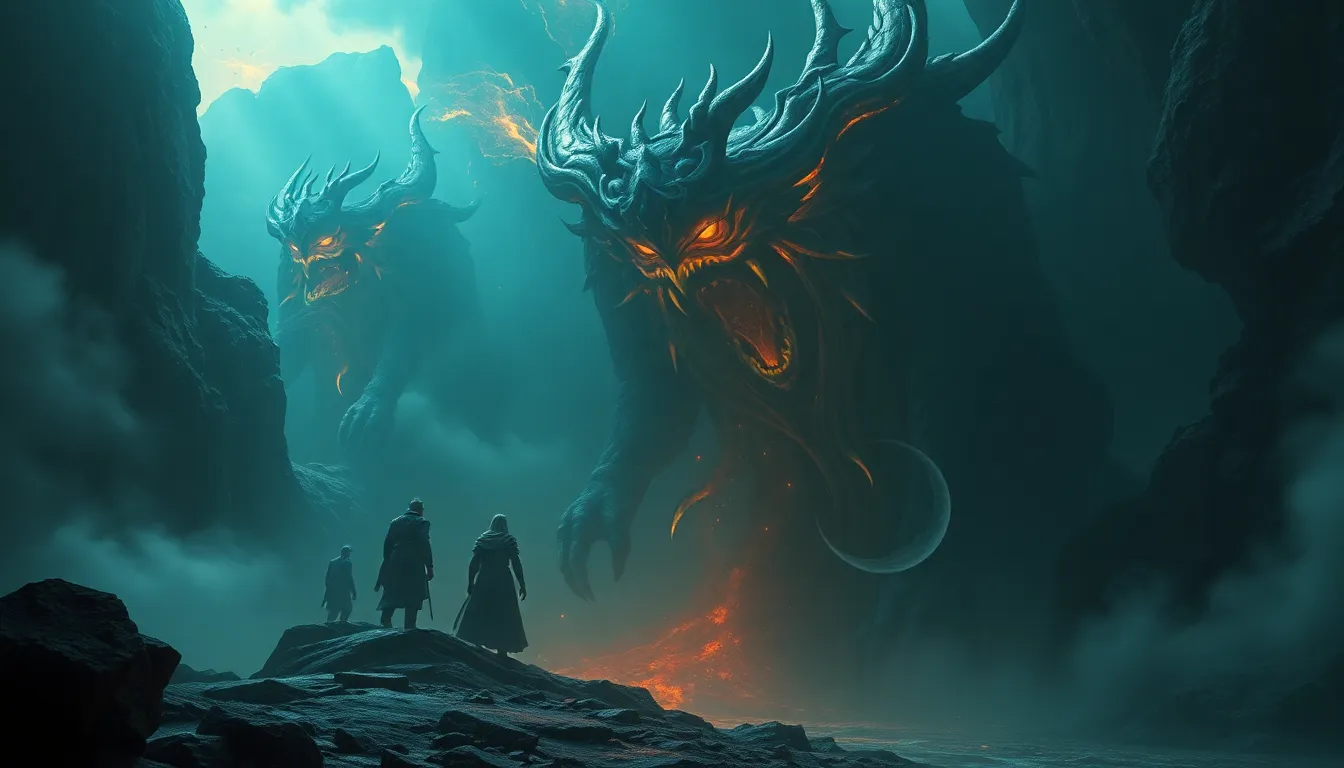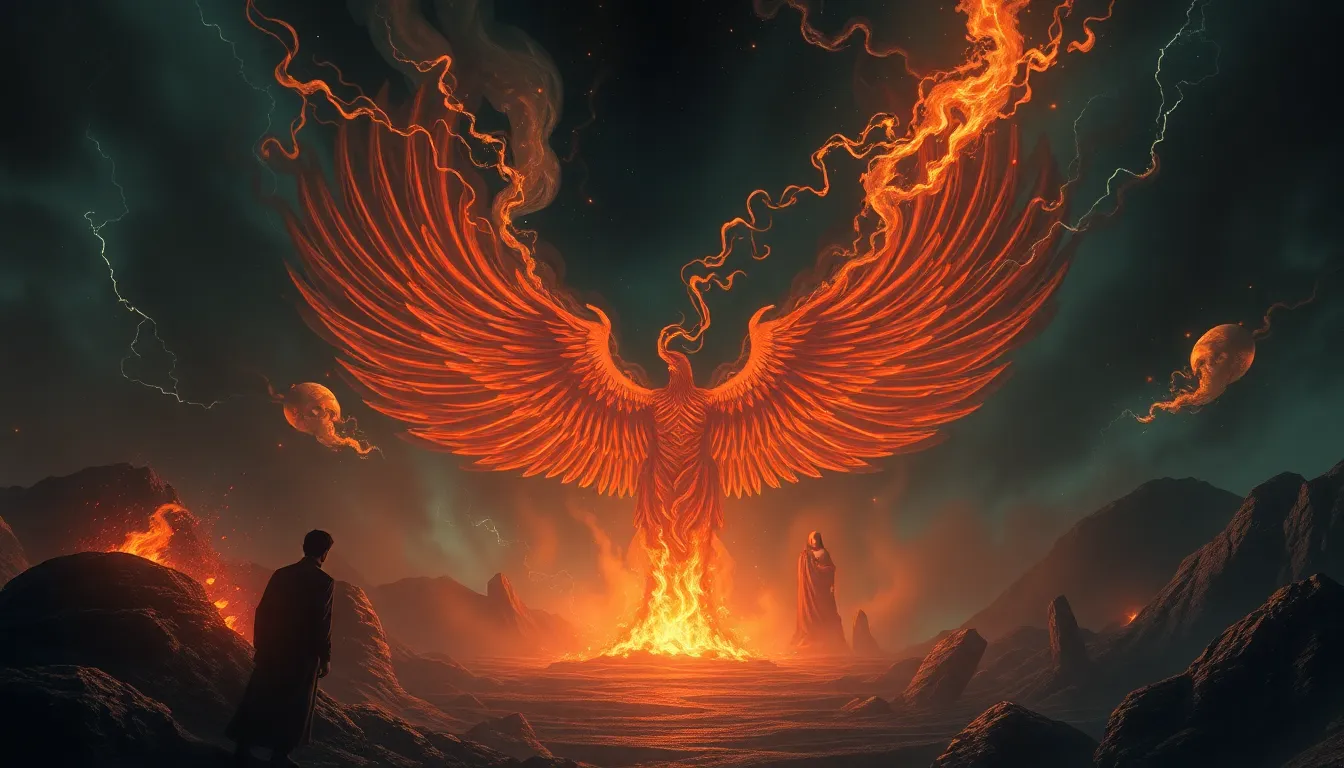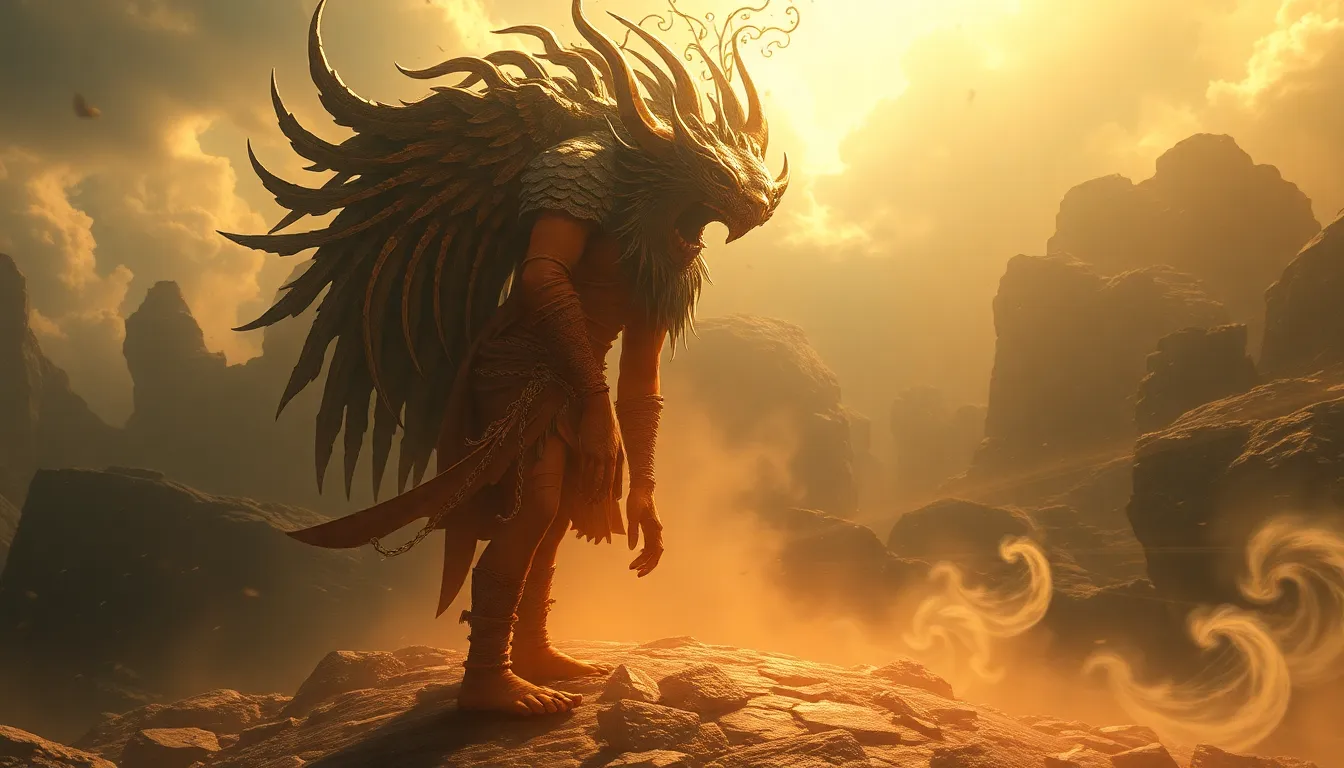Divine Trials: The Mythical Challenges That Shaped Legends
Introduction to Divine Trials
Divine trials are significant challenges imposed by gods or other supernatural entities within various mythologies. These trials often serve as pivotal moments that define the characters who face them, shaping their destinies and, in many cases, the cultural narratives of the societies that tell their stories. The importance of these challenges lies not only in the trials themselves but in the moral and ethical lessons they convey, illustrating the complex relationship between mortals and the divine.
The Role of Deities in Mythical Challenges
Across different pantheons, deities play a crucial role in framing the trials that heroes must endure. Each culture’s gods and goddesses often embody specific qualities and powers that directly influence the nature of the challenges faced by mortals.
- Greek Pantheon: Gods like Zeus, Hera, and Athena often orchestrate trials to test heroes’ strength and character.
- Norse Pantheon: Deities such as Odin and Thor set forth challenges that emphasize bravery, wisdom, and sacrifice.
- Hindu Pantheon: Deities like Vishnu and Shiva present trials that focus on dharma (duty) and moral righteousness.
This divine intervention not only tests the hero but also serves to highlight the traits valued by that particular culture, reinforcing societal norms and expectations.
Famous Divine Trials in Greek Mythology
In Greek mythology, several notable divine trials stand out, illustrating the relationship between heroes and their gods.
The Twelve Labors of Hercules
The Twelve Labors of Hercules, assigned by King Eurystheus, are perhaps the most famous set of divine trials. These labors were not only meant to challenge Hercules but also to atone for his past misdeeds. Each labor symbolizes different virtues and moral lessons:
- The Nemean Lion: Strength and courage
- The Lernaean Hydra: Intelligence and strategy
- The Golden Apples of the Hesperides: Perseverance and cunning
Through these trials, Hercules transforms from a flawed mortal into a legendary hero, exemplifying the journey of redemption.
The Trials of Odysseus in “The Odyssey”
Odysseus, the protagonist of Homer’s “The Odyssey,” faces numerous trials on his journey home after the Trojan War. Each obstacle, from the Cyclops to the Sirens, serves as a metaphor for human struggles:
- The Cyclops: The danger of hubris
- The Sirens: The challenge of temptation
- The Underworld: Confronting mortality and fate
These trials not only test Odysseus’s physical abilities but also his intellect and moral fiber, highlighting the complexity of the human experience.
Norse Mythology and Trials of the Gods
Norse mythology is rich with tales of trials that test the gods themselves, revealing deeper truths about existence and the nature of heroism.
The Trials Faced by Thor and Loki
Thor, the god of thunder, and Loki, the trickster god, often engage in challenges that emphasize strength and cunning. Notable trials include:
- The Contest of Strength: Thor’s battle against giants showcases physical prowess.
- The Fish of Loki: Loki’s cleverness in retrieving his stolen wife demonstrates the importance of wit.
These stories emphasize that both strength and intelligence are vital in overcoming adversity.
The Role of Ragnarok as a Divine Trial for All of Existence
Ragnarok is perhaps the ultimate divine trial in Norse mythology, signaling the end of the world and the rebirth that follows. It serves as a testament to the cyclical nature of life and the inevitability of conflict, challenging gods and mortals alike to confront their fates.
Eastern Mythologies: Trials in Hinduism and Buddhism
Eastern mythologies also feature profound trials that reflect the values and teachings of their respective religions.
The Trials of Rama in the Ramayana
In the Hindu epic “Ramayana,” Rama faces numerous trials that test his virtue, honor, and duty as a prince and husband. Key challenges include:
- The Exile: A test of loyalty and adherence to dharma.
- The Rescue of Sita: A demonstration of love and bravery.
Rama’s journey epitomizes the ideal qualities of a hero, reinforcing moral righteousness.
The Challenges Faced by Siddhartha Gautama
Siddhartha Gautama, later known as the Buddha, underwent significant trials in his quest for enlightenment. His challenges, including ascetic practices and meditation under the Bodhi tree, symbolize the struggle against ignorance and suffering, ultimately leading to profound spiritual insight.
The Role of Mortals in Divine Trials
Mortals often navigate divine challenges, showcasing human resilience and adaptability. These trials not only test their limits but also facilitate transformation.
- Hercules: Transformed from a tragic figure to a celebrated hero.
- Odysseus: Grows from a cunning warrior to a wise leader.
These transformations illustrate the profound impact of divine trials on human character development.
Symbolism and Themes in Divine Trials
Divine trials are laden with symbolism, often reflecting universal themes such as:
- Sacrifice: The willingness to give up personal desires for a greater cause.
- Redemption: The chance to atone for past mistakes.
- Transformation: The journey toward becoming one’s best self.
These themes resonate deeply with audiences, providing insight into the human condition and the struggles we all face.
Cultural Interpretations of Divine Trials
Different cultures interpret and adapt the concept of divine trials in unique ways, leading to varied narratives and lessons. Eastern and Western mythologies often have distinct approaches:
- Eastern Interpretations: Emphasize harmony, inner peace, and the cyclical nature of life.
- Western Interpretations: Often focus on individualism, heroism, and the battle against external forces.
These cultural lenses shape the way stories are told and the lessons they impart.
The Legacy of Divine Trials in Modern Storytelling
The influence of mythical trials persists in contemporary literature and media. Modern heroes, whether in films, books, or video games, often face challenges reminiscent of those found in ancient mythologies.
- Movies: Characters like Frodo in “The Lord of the Rings” face trials that echo the hero’s journey.
- Video Games: Titles like “God of War” incorporate mythological challenges into gameplay.
These modern narratives continue to explore themes of growth, sacrifice, and the human experience, underscoring the timeless nature of divine trials.
Conclusion: The Enduring Power of Divine Trials
Divine trials remain a powerful narrative device that resonates across cultures and generations. They serve as a mirror reflecting human struggles, moral dilemmas, and the quest for meaning. The trials faced by heroes in mythology continue to provide valuable lessons about resilience, courage, and the complexity of human nature.
As we navigate our own challenges in the modern world, the stories of divine trials remind us that facing adversity can lead to profound transformation and deeper understanding of our place in the universe.



